Related Research Articles

Aldous Leonard Huxley was an English writer and philosopher. His bibliography spans nearly 50 books, including novels and non-fiction works, as well as essays, narratives, and poems.
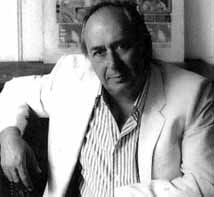
James Graham Ballard was an English novelist and short-story writer, satirist and essayist known for psychologically provocative works of fiction that explore the relations between human psychology, technology, sex and mass media. Ballard first became associated with New Wave science fiction for post-apocalyptic novels such as The Drowned World (1962). He later courted controversy with the short-story collection The Atrocity Exhibition (1970), which includes the story "Why I Want to Fuck Ronald Reagan" (1968), and the novel Crash (1973), a story about car-crash fetishists.
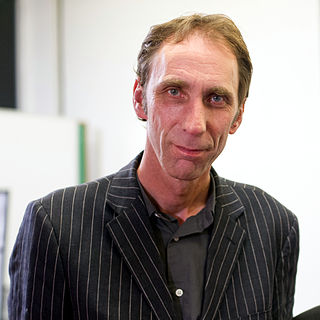
William Woodard Self is an English writer, journalist, political commentator and broadcaster. He has written 11 novels, five collections of shorter fiction, three novellas and nine collections of non-fiction writing. Self is currently Professor of Modern Thought at Brunel University London, where he teaches psychogeography.
Modernity, a topic in the humanities and social sciences, is both a historical period and the ensemble of particular socio-cultural norms, attitudes and practices that arose in the wake of the Renaissance—in the Age of Reason of 17th-century thought and the 18th-century Enlightenment. Commentators variously consider the era of modernity to have ended by 1930, with World War II in 1945, or as late as the period falling between the 1980s and 1990s; the following era is often referred to as "postmodernity". The term "contemporary history" is also used to refer to the post-1945 timeframe, without assigning it to either the modern or postmodern era.

Stephen Jay Greenblatt is an American literary historian and author. He has served as the John Cogan University Professor of the Humanities at Harvard University since 2000. Greenblatt is the general editor of The Norton Shakespeare (2015) and the general editor and a contributor to The Norton Anthology of English Literature.

Heather Anita Couper, was a British astronomer, broadcaster and science populariser.

Richard Furman Reeves was an American writer, syndicated columnist, and lecturer at the Annenberg School for Communication at the University of Southern California in Los Angeles.

Louise Doughty is an English novelist and screenwriter. She is best known for her bestselling novels, including Apple Tree Yard. She has also worked as a cultural critic for newspapers and magazines. Her weekly column for The Daily Telegraph was published as A Novel in a Year in 2007. Doughty was the presenter of the BBC Radio 4 programme A Good Read in 1998 to 2001.
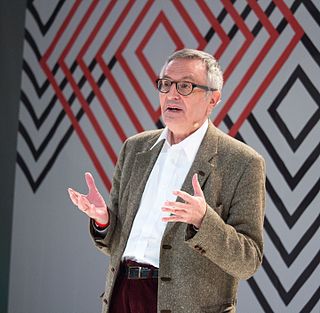
John Nicholas Gray is an English political philosopher and author with interests in analytic philosophy, the history of ideas, and philosophical pessimism. He retired in 2008 as School Professor of European Thought at the London School of Economics and Political Science. Gray contributes regularly to The Guardian, The Times Literary Supplement and the New Statesman, where he is the lead book reviewer. He is an atheist.

Sebastian Charles Faulks is a British novelist, journalist and broadcaster. He is best known for his historical novels set in France – The Girl at the Lion d'Or, Birdsong and Charlotte Gray.

Sir Simon David Jenkins FLSW is a British author, a newspaper columnist and editor. He was editor of the Evening Standard from 1976 to 1978 and of The Times from 1990 to 1992.
Sir Ronald Harwood was a South African-born British author, playwright, and screenwriter, best known for his plays for the British stage as well as the screenplays for The Dresser and The Pianist, for which he won the 2003 Academy Award for Best Adapted Screenplay. He was nominated for the Best Adapted Screenplay Oscar for The Diving Bell and the Butterfly (2007).
Bryan Ronald Wilson was a British sociologist. He was Reader Emeritus in Sociology at the University of Oxford and President of the International Society for the Sociology of Religion (1971–75). He became a Fellow of All Souls College, Oxford in 1963.

Sir Andrew Jonathan Bate, CBE, FBA, FRSL, is a British academic, biographer, critic, broadcaster, scholar, and occasional novelist, playwright and poet. He specializes in Shakespeare, Romanticism and ecocriticism. He is Regents Professor of Literature and Foundation Professor of Environmental Humanities in a joint appointment in the Department of English in The College of Liberal Arts and Sciences and the School of Sustainability in the Global Futures Laboratory at Arizona State University, as well as a Senior Research Fellow at Worcester College, Oxford, where he holds the title of Professor of English Literature. Bate was Provost of Worcester College from 2011 to 2019. From 2017 to 2019 he was Gresham Professor of Rhetoric in the City of London. He was knighted in 2015 for services to literary scholarship and higher education. He is also Chair of the Hawthornden Foundation.
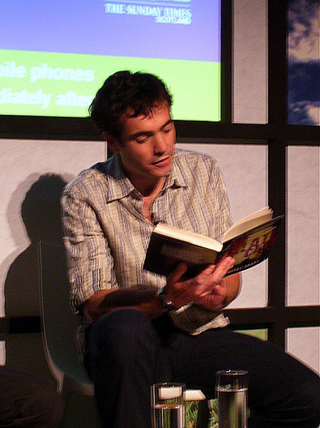
Tobias Jones is a British author, journalist, teacher and community-builder. He was educated at Jesus College, Oxford, and then worked at the London Review of Books and the Independent on Sunday. He has written various works of fiction and non-fiction, and appears regularly on British and Italian TV and Radio. He lives in Parma in Italy.

Stanley Weintraub was an American historian and biographer and an expert on George Bernard Shaw.
Alan S. Cowell is a British journalist and a former foreign correspondent for The New York Times.
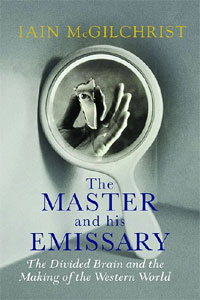
The Master and His Emissary: The Divided Brain and the Making of the Western World is a 2009 book written by psychiatrist Iain McGilchrist that deals with the specialist hemispheric functioning of the brain. The differing world views of the right and left brain have, according to the author, shaped Western culture since the time of the ancient Greek philosopher Plato, and the growing conflict between these views has implications for the way the modern world is changing. In part, McGilchrist's book, which is the product of twenty years of research, reviews the evidence of previous related research and theories, and based on this and cultural evidence, the author arrives at his own conclusions.
James Le Fanu is a British retired general practitioner, journalist and author, best known for his weekly columns in the Daily and Sunday Telegraph. He is married to publisher Juliet Annan.
Fiona Maddocks is a British music critic and author who specializes in classical music. Described as "one of the UK's leading writers and commentators on classical music", Maddocks has been chief music critic of The Observer since 2010. She held a central role in founding three media companies: BBC Music Magazine, Channel 4 and The Independent.
References
- ↑ boltonschool.org
- 1 2 "IBPC: New Poetry Voices". Archived from the original on 9 January 2009. Retrieved 9 August 2014. IBPC
- ↑ Zarandi, Mehrdad M. (2003). Science and the Myth of Progress. World Wisdom, Inc. p. 235. ISBN 9780941532471.
- ↑ Wheen, Francis (1996). Lord Gnome's Literary Companion. Verso. p. 155. ISBN 9781859840450.
- ↑ "No. 62666". The London Gazette (Supplement). 8 June 2019. p. B8.